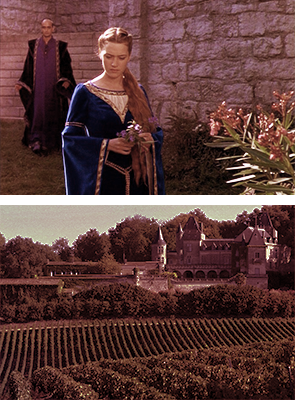nanshe-of-nina: WOMEN’S HISTORY † ALIENÒR d'AQUITÀNIA (1122 or 1124 &ndas
nanshe-of-nina:WOMEN’S HISTORY † ALIENÒR d'AQUITÀNIA (1122 or 1124 – 1 April 1204)Alienòr d'Aquitània (known as “Eleanor of Aquitaine” in English and “Éléonore d'Aquitaine” or “Éléonore de Guyenne” in French) was the eldest child of Guilhèm X de Peitieus, duq d'Aquitània and Aenor de Châtellerault. Her only legitimate brother, Guilhèm Aigret, died young. Her father died in 1137 during a pilgrimage, leaving her as his heir. Guilhèm was concerned that Alienòr might be abducted and married against her will (which was unfortunately common) and made King Louis VI as her guardian. Louis arranged for Alienòr to marry his son, the future Louis VII and died himself shortly after arranging the marriage. Unfortunately, Alienòr and Louis’ marriage did not work out for a number of reasons, but the biggest reason was that they had no sons, only two daughters: Marie, comtesse de Champagne and Alais, comtesse de Blois. Their marriage was annulled in 1152 and both of them remarried: Louis to Constanza de Castilla and Alienòr to Henry Court-manteau, a grandson of King Henry I of England through his mother, Mathilde. After the death of his cousin, Étienne de Blois, Henry became the next king of England. Alienòr and Henry appear to have had a rather tempestuous relationship, though they had eight children, seven of whom survived infancy. In 1173, Alienòr apparently encouraged three of her sons (Henry, Richard, and Geoffrey) to rebel against their father’s authority - though the reason why is uncertain. Henry forgave his sons after the rebellion, but kept Alienòr prisoner. In 1189, Henry died and his son, Richard, became king and promptly freed his mother. Alienòr served as regent during Richard’s reign, while he was away fighting in the Third Crusade. She died in 1204, having outlived all but two of her children: John I of England and Eleanor of England, Queen of Castile. -- source link
#history#queens#12th century

